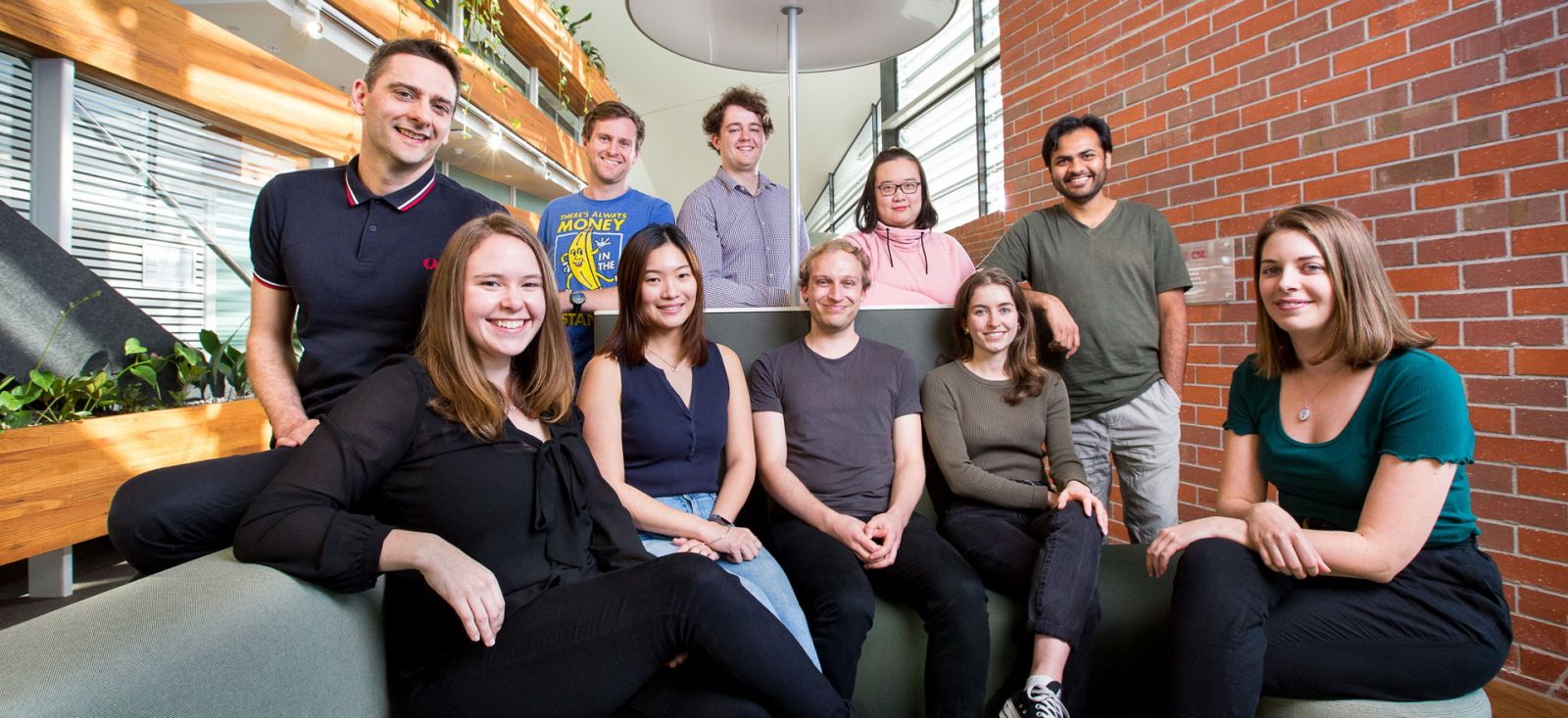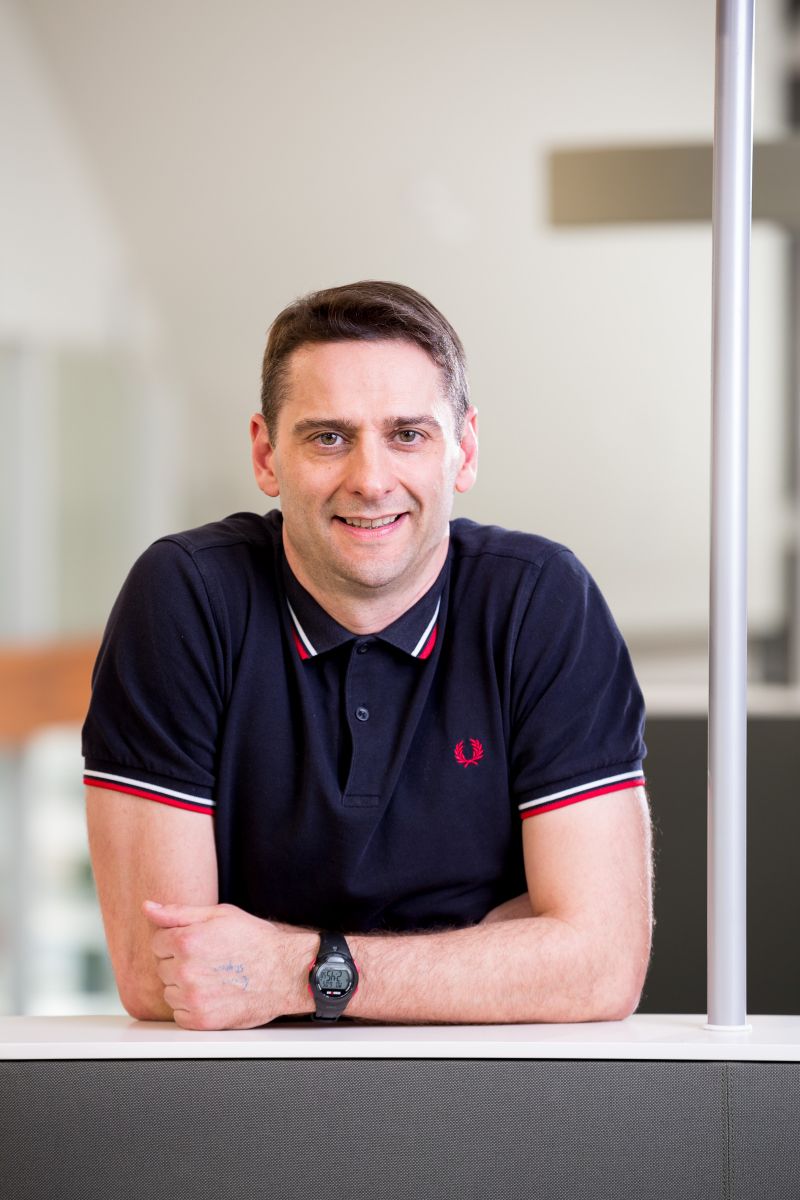Donnelly Group

"Our research focuses on the application of synthetic inorganic chemistry to biology as well as investigating the role of metal ions in biology and the use of metal ions in chemical synthesis.” – Professor Paul Donnelly
Biography

Professor Paul Donnelly
Professor
School of Chemistry
T: (+613) 834 42399
E: pauld [at] unimelb.edu.au
School of Chemistry webpage
Read more about the Donnelly Research Group
Paul Donnelly is a Professor in the School of Chemistry. Paul is a graduate of the University of Western Australia and was a Post-doctoral Junior Research Fellow at the University of Oxford.
Research
The group focuses on synthetic inorganic and organic chemistry to make new metal-containing compounds with potential applications in biology. In particular, we are interested in the application of coordination complexes and metal-based compounds as diagnostic or therapeutic agents. Exploratory synthetic coordination chemistry and the design of new metal complexes underpins all of our research. Our multidisciplinary research involves inorganic and organic synthesis followed by characterisation utilising a wide range of analytical techniques including: multinuclear NMR, electronic, and EPR spectroscopies, mass spectrometry, HPLC, electrochemical techniques and X-ray crystallography.
Metal-based Radiopharmaceuticals for Diagnostic Imaging and Therapy of Cancer.
There are several metallic radionuclides that can be used for either diagnostic imaging or radiotherapy. Our research focuses on developing methods to attach radioactive metal ions to
tumour targeting peptides or antibodies. The resulting constructs can be used for either diagnostic molecular imaging or targeted radiotherapy depending on the selected radionuclide. Our research includes programs that focus on using the positron-emitting radionuclides 64Cu, 68Ga, and 89Zr for diagnostic imaging with positron emission tomography. We also pursue potential radiotherapeutic applications with the beta-emitting radionuclides 67Cu, 177Lu and 188Re. Translation of this fundamental chemistry to pre-clinical and clinical trials is pursued in collaboration with the Peter MacCallum Cancer Centre and pharmaceutical companies.
Diagnosis and Therapy of Neurodegenerative Disease
Alzheimer’s Disease is associated with the presence of extracellular protein deposits where the major constituents are aggregated forms of a peptide called amyloid-β. We are designing metal complexes with radioactive isotopes (99mTc, 64Cu, 68Ga) that bind selectively to amyloid-β plaques with the goal of designing imaging agents to assist in early diagnosis and provide insight into the molecular nature of the condition. Other projects include designing new imaging agents to assist in the diagnosis of Parkinson’s disease.
We also investigate the roles of metal ions in cellular biology with a particular focus on changes associated with neurodegeneration. We strive to use this knowledge to guide the development of new therapeutic approaches for the treatment of Alzheimer’s and Parkinson’s diseases as well as motor neuron disease (amyotrophic lateral sclerosis). Aspects of this research involve collaboration with scientists from the Florey Institute of Neuroscience and Mental Health and the QIMR Berghofer Medical Research Institute. Our work on new therapeutic approaches for amyotrophic lateral sclerosis and Parkinson’s disease has been translated to clinical trials in collaboration with clinicians, and a pharmaceutical company.
Metal Ions in Catalysis and Synthesis
1. Catalysis by metal complexes plays a prominent role in synthetic organic chemistry. We are interested in the synthesis of new metal complexes with catalytic activity and in developing new metal promoted reactions.
2. We also undertake exploratory synthetic chemistry with a general goal of making new new and interesting metal complexes.
3. Synthesis of luminescent metal complexes for applications in biology and analytical chemistry.
Techniques
Inorganic/organic synthesis, Schlenk lines for anaerobic preparative work, HPLC, UV-vis spectroscopy, mass spectrometry, electrochemistry, protein and antibody bioconjugations, peptide synthesis, NMR spectroscopy, X-ray crystallography.
Group Members
Group Leader
Professor Paul Donnelly
Post Doctoral Researchers and Research Assistants
Dr Asif Noor
Dr Stacey Rudd
Dr Katherine Morgan
La’El Kimchi
PhD Students
Emily McGowan
Janelle Spinks
Honours/Masters Students
Crystal Hartanto
Ellanor Goyne
Hanrui Wu

